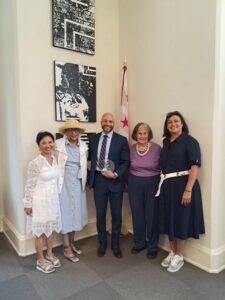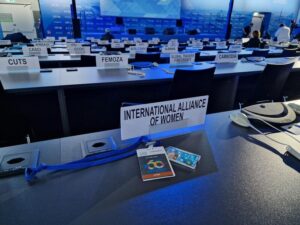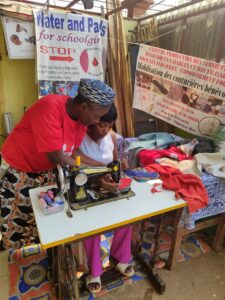 The theme for the International Women’s Day 8th March 2018 is “Time is now: rural and urban activists, transforming women’s lives”.
The theme for the International Women’s Day 8th March 2018 is “Time is now: rural and urban activists, transforming women’s lives”.
Rural women who make up over a quarter of the world population and the majority of the 43 percent of women in the global agricultural force are active agents of economic, social change and environmental protection. However, there are in many ways constrained in their roles as farmers, producers, investors, caregivers and consumers. On almost every measure of development because of deep seated gender inequalities and discrimination, rural women fare worse than rural men or urban women. For instance, while the globalized pay gap between men and women stands at 23%, in rural areas it can be as high as 40 per cent.
According to General Recommendation (GR) 34 of CEDAW on the rights of rural women they face structural barriers to the full enjoyment of their human rights, which are overlooked or incompletely addressed in laws, policies, budgets, investments and interventions at all levels across countries. GR 34 notes that rural women tend to be excluded from leadership and decision making and are disproportionately affected by poverty and unequal access to land and natural resources, infrastructure and services, decent work and social protection.
UN women have recently released a report called “Turning promises into actions: Gender equality in the 2030 Agenda for sustainable development.” The report examines progress and challenges in implementing the SDG’s from a gender perspective.
The UN report underlines that progress towards meeting the sustainable development goals for women and girls is unacceptably slow and that unless progress on gender equality is significantly accelerated, the global community will not be able to keep its promise. The report concludes that the focus on women and girls provided by the SDG’s is yet to turn into practice.
The report calls for better data, statistics and analysis which can be used to hold governments, companies and other stakeholders accountable for their commitments to gender equality.
Concerning rural women, IAW calls for a strengthening of gender respective accountability mechanisms to ensure that rural women and their organizations can influence policy formulation, implementation and monitoring at all levels of government with a view to enabling rural women to hold all duty bearers to account.
IAW welcomes the recently adopted GR 34 of CEDAW on rural women’s rights, which interprets article 14 of CEDAW on rural women in the context of the Convention as a whole.
GR 34 is particularly helpful to women’s organizations and civil society as it is an important tool with which government’s accountability can be checked. A call for accountability to governments concerning rural women’s human rights on the international women’s day is a good action, but it is not enough.
Although there is a global mobilization for a future that is more gender equal, the results are very limited. The momentum is not transforming into action to empower women in all settings, rural and urban.
We have to empower rural women to be able to hold their governments accountable for their human rights. One way of doing this is by supporting rural women’s organizations that work for the empowerment of these women. Also by supporting activists in particular rural ones who are working relentlessly to claim women’s rights and realize their full potential.
The IAW has done so by nominating Sizani Ngubane for the Woman of Distinction award for 2018 given by N60/CSQ NY. Sizani has won the award for the work she is doing with the Rural Women’s Movement in South Africa that she has created in the 90’s.
The RWM is a movement by rural women for rural women.
The RWM is the only grassroots movement leading an intensive campaign for women’s and girls’ land, property and inheritance rights. Lobbying National Parliament and policy makers for policies that are user-friendly to indigenous women and girls. Sizani has been working very hard to empower rural and indigenous women and give them a voice.
The RWM which started with a group of 250 indigenous and rural women and youth is now a coalition of 501 community based organizations with a membership of approximately 50.000 women.
Sizani provides training on different pieces of legislation and policies and encourages women and girls to effectively participate in policy making by assisting them to prepare oral and written submissions to be presented before different structures of policy makers within the National Parliament.
The RWM has been leading successful lawsuits against acts, of government declared unconstitutional because of gender bias. The RWM has also campaigned against governmental bills that create a separate legal system with second class rights, for people living in the Bantustans, in particular women, which have been withdrawn.
RWM actions have contributed to a decrease of transmitted diseases by 15% in areas where it works as well as of teenage pregnancy by 10% in the last seven years. A traditional practice of abduction and forced marriage of girls “ukuthwala” has stopped.
Sizani is much more than an activist, she is a human rights defender. Her strong activism has caused her many attacks that have put her life into danger. In one of these attacks, her brother was killed.
The RWM has had a tremendous impact on the lives of rural women in South Africa, most of all because Sizani is a role model for young girls and women teaching them through her example to believe in themselves and that women have the power to break through and achieve their aims.
Joanna Manganara
President


